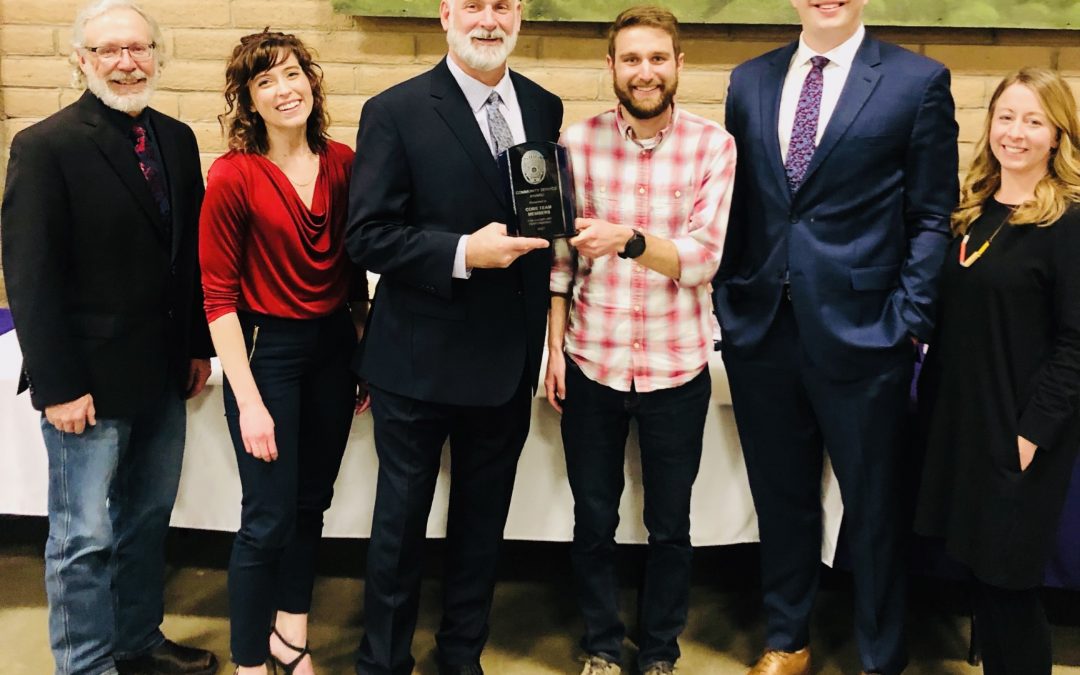The Durango Co-Responder (CORE) program is continuing to receive positive feedback and recognition after its one-year anniversary on Feb. 23.
CORE was awarded a Community Service Award during the Durango Police Department Public Safety Awards on Feb. 18 at the La Plata County Fairgrounds. CORE pairs a Durango Police Department Crisis Intervention Team officer with an Axis Health System Behavioral Health Specialist who co-respond to situations based on 911 dispatch criteria.
“We are honored to be a part of the DPD family,” said Molly Rodriguez, Axis Health System Clinical Manager and CORE team lead. “Our partnership, collaboration and community service is making a difference in the lives of individuals while also positively influencing systemic change.”
Creating the new CORE program was an essential step for our community for non-criminal events reported through 911. It effectively addresses situations when there is an intersection between safety, social and health crises for individuals in the community. CORE builds on the longstanding success of the annual law enforcement Crisis Intervention Training (CIT) program started by Axis in 2001 to support officers in behavioral health response and de-escalation skills. Currently, over 50 percent of DPD are trained CIT officers, which has been very successful.
Across the U.S., co-responder teams have demonstrated improved interactions between law enforcement and the people they serve. Communities have also recognized savings by connecting people to appropriate services and resources, rather than using more costly, higher level interventions. Nationally, the benefits of co-responder programs include:
- Connecting people with available resources and offering follow-up: Teams offer appropriate options for individuals and coordinate follow-up. Once legal consequences are ruled out, outcomes can range from leaving the individual with necessary resources, transporting the individual to a hospital or walk-in clinic or providing support and resources for family members and others on-scene.
- Increasing linkage to appropriate level services: Results indicate that co-responder teams report success in diverting community members from formal actions (arrests, mental health holds, and emergency department transports).
- Helping to build trust with community members: Individuals who frequently come in contact with co-responders are more likely to accept help and enroll in a behavioral health program than those who have fewer contacts with the co-responder teams. This suggests that the co-responder model can be a valued and trusted community resource.
- Responding to referrals and frequent utilizers of 911: After-the-fact referrals from law enforcement are helpful for people in need of service referrals. Since teams cannot respond to every call, after-the-fact referrals are an important avenue to reach additional community members in need of behavioral health or other services.
A similar program will launch in Montezuma County in April of 2022. We are currently hiring for new team members for crisis and co-responder teams. To learn more about how to join our team, click here..



